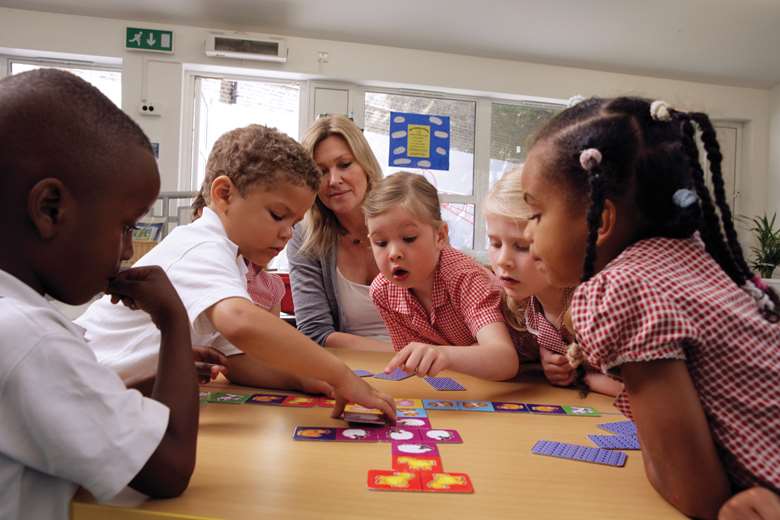Greening announces EYFS is to stay
Jess Brown
Thursday, October 20, 2016
Existing early years learning standards are to remain in place for 2017/18, Education Secretary Justine Greening has announced.

The future of the Early Years Foundation Stage (EYFS) profile had been in doubt after the government announced earlier this year plans - subsequently scrapped - to introduce a baseline assessment of all primary school pupils in reception.
However, Greening said the EYFS will now remain in place while the Department for Education launches a consultation in the New Year on assessment of primary-age pupils.
Greening has said it will examine "the best starting point to measure the progress that children make in primary school, and the role and operation of teacher assessment".
Greening's announcement coincides with the publication of this year's EYFS profile results, showing that to 69.3 per cent of children achieved a "good level of development" compared with 66.3 per cent in 2015.
Neil Leitch, chief executive of the Pre-school Learning Alliance, said the consultation must focus on child-centred outcomes.
"We hope that, as the government prepares to consult on primary assessment, it will listen to the sector and recognise that early assessment should focus first and foremost on the child, and supporting their ongoing learning and development, and not - as has been the focus more recently - measuring and ranking schools and providers," he said.
Greening also announced a climbdown of the controversial policy to test year 7 pupils who fail their primary school exams in maths and literacy, which featured in the Conservative Party's election manifesto last year as a way of improving education standards.
As part of the primary assessments, only 66 per cent of pupils in the first cohort of children achieved the new expected standard in reading earlier this year.
"We will not introduce statutory mathematics and reading resits on children's arrival in year 7. Rather, we will focus on the steps needed to ensure a child catches up lost ground," Greening said.
"While the steps set out above will make improvements in the current academic year, we also need to now set out a longer term, sustainable approach," Greening said.
Kevin Courtney, general secretary of the NUT, the largest teachers' union, said the measures are welcome, but do not go far enough to eradicate standardised testing.
"The system of assessment imposed on English primary schools is a failure. In 2016, it has produced a situation in which nearly half of all 11-year-olds were judged not ready for secondary school," he said.
"Today's announcement has begun to move us in the right direction but teachers will want to see acceleration towards a fairer system in which children's individual needs can be met and their abilities fairly captured.
"Otherwise nothing will improve for 11-year-olds and we risk labelling another cohort as failing to meet an unrealistic expected standard."
Last month, the education select committee launched an inquiry into the impact and effectiveness of the government's policies on testing children in primary school.




